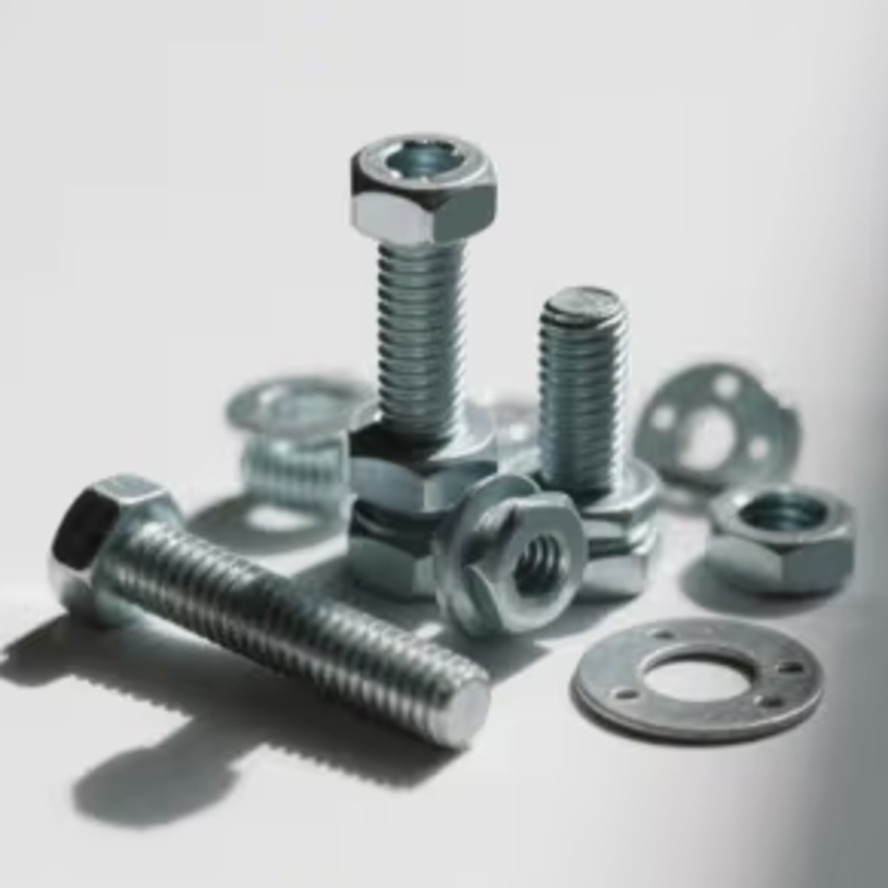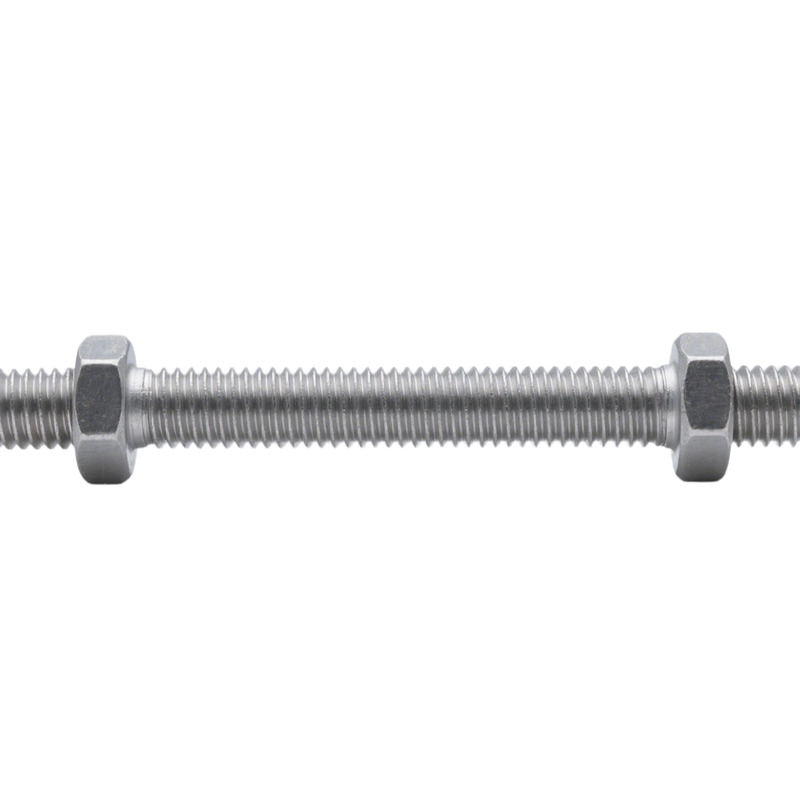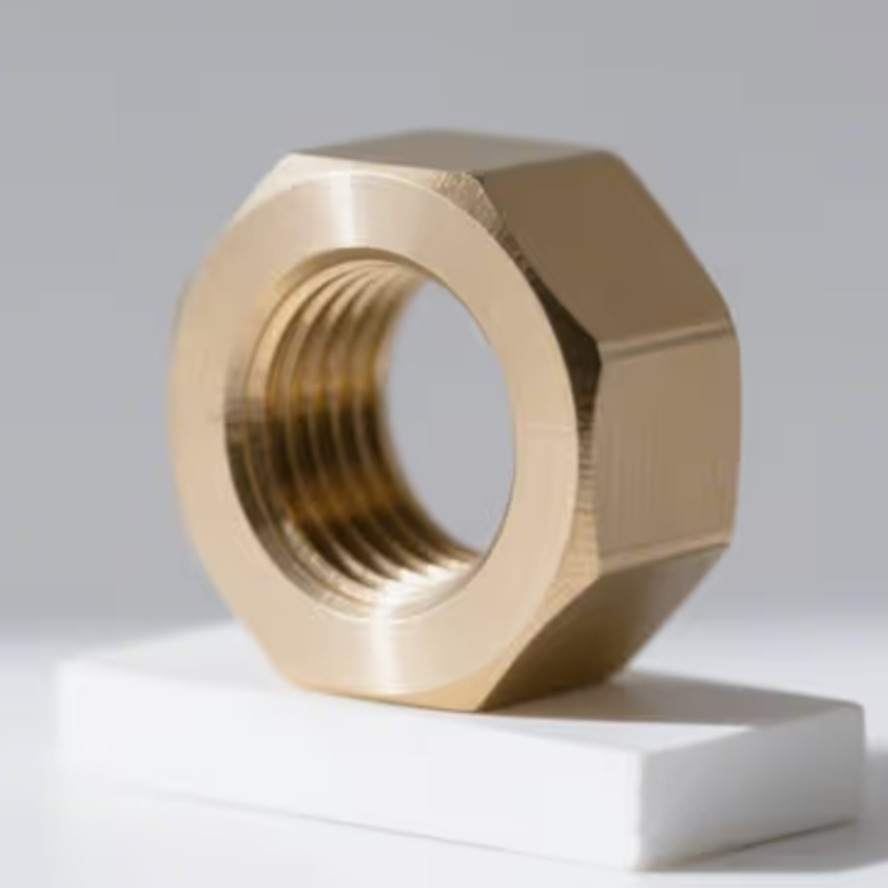Introduction to Fasteners: Bolts, Nuts, Washers

Contents
1.Introduction to fasteners
2.Types of Essential Fasteners: Bolts, Nuts, Screws, and Countersunk Washers
3.Bolts Fastener: Strength for Heavy-Duty Connections
3.1 Nuts Fastener: The Complementary Component
3.2 Screw Fastener: Versatility for Diverse Installations
3.3 Countersunk Washer Fasteners: Aesthetic and Functional Enhancement
4.Comparison of Common Fastener Types
5.Material Selection for Fasteners Supplies
6.Key Factors to Consider When Sourcing Fasteners Supplies
7.Applications of Fasteners Supplies Across Industries
8.Frequently Asked Questions (FAQs) About Fasteners Supplies
9.Conclusion
1.Introduction to fasteners
Fasteners are crucial components in all industries, ranging from the construction of skyscrapers to the assembly of electronic devices. These fasteners - including bolts, nuts, screws, and countersunk washers - hold structures and products together, ensuring safety, durability, and proper functionality. Without high-quality fasteners, even the most advanced designs can collapse or fail.
In today's global market, the supply of fasteners must meet strict standards to adapt to various environments, such as extreme temperatures and corrosive conditions. This article discusses the main types of fasteners, how to select them, their applications in industry, and answers common questions to assist buyers and professionals in making choices.
2.Types of Essential Fasteners: Bolts, Nuts, Screws, and Countersunk Washers
Not all fasteners have the same function. Each type is designed based on specific loads, installation methods and environmental conditions. The following is an introduction to the classification of the most commonly used fasteners in the fastener supply.
3.Bolts Fastener: Strength for Heavy-Duty Connections

Bolt fastener is specifically designed for applications that require high tension. In such applications, stability under heavy loads is of utmost importance. Unlike screws, bolts usually require a nut to connect two or more components together. They have a threaded shaft and a head (such as hexagonal or square), and this design can distribute the pressure and can be tightened using tools like a wrench.
Common types include wood screws (for wood or metal) and machine screws (for industrial machinery). Screws are typically made of high-strength steel or stainless steel to resist bending or shearing, and are therefore well-suited for use in bridges, buildings and heavy equipment.
3.1 Nuts Fastener: The Complementary Component

Nut fastener is used in conjunction with the bolt to form a secure connection. They have internal threads that match the external threads of the bolt, and their design varies depending on the specific application: hexagonal nuts, locking nuts, custom nuts.
Nuts are usually made of the same material as the corresponding bolts to ensure compatibility between them and the distribution of stress. In the supply of fasteners, nuts are usually sold individually or in sets (along with the bolts), which facilitates the procurement work in the project.
3.2 Screw Fastener: Versatility for Diverse Installations
Screw fastener differs from bolts in that it can be directly threaded into a pre-drilled hole or material (such as wood, plastic) without a nut. This makes screws highly versatile for both temporary and permanent connections.
The types of screws include wood screws (with sharp tips for wood), thin metal screws (for thin metals), and self-tapping screws (which can form threads on their own). There are various head styles for screw fasteners - flat heads, round heads or hexagonal heads - and the materials include things like copper (for electronic devices) or titanium (for aerospace).
3.3 Countersunk Washer Fasteners: Aesthetic and Functional Enhancement
The headless washer-type fastener has two functions: it can disperse pressure (just like a regular washer) and also create a smooth surface. Its conical design enables the head of the fastener (such as a countersunk washer) to be located beneath the material surface, thus avoiding the appearance of protrusions.
This is of crucial importance for applications that require smooth surfaces, such as furniture, car interiors or aircraft panels... The inverted ring washers can also prevent damage to soft materials (such as plastic) by evenly distributing the load of the fastener.
4.Comparison of Common Fastener Types
The table below summarizes the main differences between bolts, nuts, screws and countersunk washers - which will help you select the appropriate components based on your supply requirements for fasteners.
| Fastener Type | Primary Function | Key Features | Typical Applications |
| Bolts Fastener | Connect heavy components; resist high loads | External threads; requires a nut; sturdy head | Bridges, construction, heavy machinery |
| Nuts Fastener | Secure bolts; prevent joint loosening | Internal threads; various styles (lock, wing) | Machinery, automotive parts, structural joints |
| Screw Fastener | Thread directly into material; no nut needed | Sharp tip; diverse head styles | Furniture, electronics, woodworking |
| Countersunk Washer | Create flush surface; distribute fastener load | Conical shape; fits countersunk screws | Automotive interiors, furniture, panels |
5.Material Selection for Fasteners Supplies
Choosing the appropriate fastener material is crucial for ensuring its performance, especially in harsh environments. The following table lists the common materials and their best applications.
| Material | Strength Level | Corrosion Resistance | Ideal Environments |
| Carbon Steel | High | Low (needs coating) | Indoor machinery, non-corrosive settings |
| Stainless Steel | Medium-High | High | Outdoor construction, marine, food industry |
| Brass | Medium | Moderate | Electronics, decorative applications |
| Titanium | Very High | Excellent | Aerospace, medical devices, high-temperature |
| Aluminum | Low-Medium | High (natural oxide) | Lightweight applications (e.g., automotive) |
6.Key Factors to Consider When Sourcing Fasteners Supplies
To ensure your fasteners meet project requirements, keep these factors in mind when purchasing:
Match the fastener’s strength to the application (e.g., use high-tensile bolts for bridges).
Choose corrosion-resistant materials (e.g., stainless steel) for outdoor or wet settings.
Ensure fasteners fit existing holes or components (e.g., a nut must match a bolt’s thread size).
Look for certifications like ISO (International Organization for Standardization) or ASTM (American Society for Testing and Materials) to guarantee quality.
Partner with trusted fasteners supplies providers who offer consistent stock and quality testing.
7.Applications of Fasteners Supplies Across Industries
Fasteners are ubiquitous, with uses tailored to each sector’s unique needs:
Bolts fastener and nuts secure steel beams and concrete structures; countersunk washers create smooth surfaces for flooring.
Screw fastener assemble interior parts (e.g., dashboards); high-strength bolts hold engines and chassis together.
Small brass screws attach circuit boards; nuts ensure secure connections in devices like smartphones.
Titanium bolts and countersunk washers withstand extreme temperatures and vibration in aircraft.
Stainless steel nuts and bolts resist saltwater corrosion, making them ideal for boats and offshore platforms.
8.Frequently Asked Questions (FAQs) About Fasteners Supplies
Below are answers to common questions about fasteners, helping you navigate procurement and usage.
Q1: What’s the difference between a bolt fastener and a screw fastener?
A1: Bolts requires a nut to secure the component and is suitable for situations where heavy loads need to be borne. On the other hand, a screw is directly embedded into the material (without the need for a nut) and is more suitable for lighter and more versatile applications.
Q2: Why use countersunk washer fasteners instead of regular washers?
A2: Countersunk washers achieve a smooth surface by embedding the head of the fastener into the groove. This is crucial for both aesthetics (such as in furniture design) and safety (to prevent protrusions on aircraft).
Q3: How do I choose the right material for fasteners supplies?
A3: Prioritize corrosion resistance for wet/outdoor use (stainless steel), strength for heavy loads (carbon steel), and lightweight needs (aluminum). Match the material to the environment.
Q4: Can I reuse nuts and bolts from old projects?
A4: It’s not recommended. Reused fasteners may have worn threads or reduced tension, leading to joint failure. Always use new fasteners for critical applications.
Q5: What size fastener do I need for my project?
A5: Measure the hole diameter and thread pitch (distance between threads). Use a thread gauge or consult the fasteners supplies supplier for compatibility charts.
Q6: Are there eco-friendly options in fasteners supplies?
A6: Yes. Many suppliers offer recycled stainless steel or aluminum fasteners, or biodegradable coatings (e.g., water-based paints) to reduce environmental impact.
Q7: How do lock nuts prevent fastener loosening?
A7: Lock nuts have a nylon insert or deformed thread that creates friction against the bolt, stopping it from unscrewing due to vibration (common in automotive or machinery).
Q8: Where can I buy high-quality fasteners supplies?
A8: Choose suppliers with ISO/ASTM certifications, positive customer reviews, and a range of products (bolts, nuts, countersunk washers). Online or local industrial suppliers work well.
9.Conclusion
Fastener products (including bolts, nuts, screws and countersunk washers) are crucial elements in safe, reliable and efficient manufacturing and construction processes. By understanding different types of fasteners and the materials used, you can ensure that your project meets performance requirements and can be used for a long time.
Whether you are building skyscrapers, assembling electronic equipment, or repairing machinery, investing in high-quality fasteners is an investment in durability. Please refer to the tables and frequently asked questions in this article to guide your purchasing process, and collaborate with reliable suppliers to obtain suitable components that meet your needs.